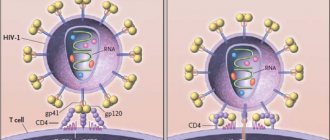COLLEGE OF PSYCHOLOGY AND PEDAGOGY IN MOSCOW
College of Psychology and Pedagogy - quality education in the field of psychology and pedagogy
Enter the College of Pedagogy and Psychology after 9th or 11th grade, transferring from another college.
The main questions that applicants and their parents have when choosing an educational institution.
Why is it better to go to college after 9th grade?
1. Opportunity to obtain a specialized specialty and education in 3 years.
2. Admission to the institute for a shortened training program.
3. Possibility to combine work and study.
4. Deferment from the army.
Where to go to study after 9th grade in Moscow?
First of all, when choosing a college or technical school for admission, you need to make sure that you have a valid license to conduct educational activities. Next, familiarize yourself with the accreditation of the educational institution and its annex. These legal documents are a guarantee of receiving a quality education.
Where and how to get an education in psychology and pedagogy?
02/44/04 SPECIAL PRESCHOOL EDUCATION
Graduate qualification: “teacher of preschool children with developmental disabilities and with intact development.”
Qualification characteristics of the graduate. The graduate prepares to work as a teacher of preschool children with developmental disabilities and with intact development in special (correctional) educational institutions of various types. The following types of activities: Organization of events aimed at strengthening the child’s health and physical development. Training and organization of various types of activities and communication of children with preserved development. Training and organization of various types of activities and communication for children with disabilities. Interaction with parents, their substitutes and employees of the educational institution. Methodological support of the educational process.
What form of study should I choose for admission?
The choice of form of study depends on the desires and capabilities of each individual applicant.
For admission to the College of Psychology and Pedagogy, we offer the following forms of training
Full-time education (for applicants based on grades 9 or 11, transfer from another institution)
evening training (for applicants based on grades 9 or 11, transfer from another institution) of any age
weekend group (for applicants in grades 9 or 11, transfer from another institution) of any age
distance learning (for applicants based on grades 9 or 11, transfer from another institution) of any age
distance learning (for applicants based on grades 9 or 11, transfer from another institution) of any age.
Important qualities
In order to enroll as a psychologist, it is enough to pass the exams well. But this is not enough to become a good specialist. Psychologists must have special character traits that will help them work with people.
These features are:
- respect for the individual;
- tolerance;
- desire to learn throughout life;
- listening skills;
- the ability to empathize;
- goodwill;
- responsibility;
- determination.
A psychologist is a responsible and interesting profession that gives you the opportunity to develop throughout your life. By choosing psychology, future students can be sure that people will need them.
Video: Psychologist. Introduction to the profession
Colleges and Technical Schools of Psychology and Pedagogy in Moscow after grades 9 and 11, transfer from another college. Rules and conditions for admission to colleges of pedagogy and psychology, open days, reviews from students and parents. Full-time, part-time, distance learning.
Psychology and Pedagogy education in Moscow
Anyone can enroll in the Moscow Colleges of Psychology and Pedagogy and obtain a specialty as a psychologist or teacher after 9th or 11th grade. Secondary vocational pedagogical education in colleges and technical schools in Moscow is rightfully considered the best. Qualified psychologists and teachers are in high demand on the labor market. Faculty of Psychology and Pedagogy at the College - Quality, Accessibility, Success! Admission to a technical school or college of psychology is possible on the basis of 9th and 11th grades. College graduates, as part of the continuing education program, enter the institutes of psychology and pedagogy without entrance exams and Unified State Examination results.
Where to study to become a psychologist and teacher
Throughout Russia there are a large number of colleges and technical schools where you can get a pedagogical education or become a psychologist. Moscow colleges of psychology and pedagogy rightfully occupy the first level here. This is where quality comes together - the prestige of a diploma, practical skills, qualified teaching staff and employment. If the question is relevant to you, where is the best place to study to become a psychologist, the answer is obvious - Moscow College of Psychology and Pedagogy.
College after 9th or 11th grade
Entering college after 9th grade is a great opportunity to get a diploma in psychology in a short time, find a job and put into practice the acquired knowledge and skills, increasing your work experience. Obtaining a higher pedagogical education and entering college after the 11th grade is becoming more difficult every year, and graduates of the 11th grade are increasingly choosing colleges and technical schools in Moscow. Independence from the Unified State Examination results, shortened training programs, employment opportunities are the main advantages of entering college after 11th grade.
Technical school or college
The technical school implements educational programs of secondary vocational education at the basic level.
College - implements educational programs of secondary vocational education at basic and advanced levels
The College of Psychology, as well as the Pedagogical College, provides the opportunity to obtain a pedagogical education after the ninth or eleventh grade of school.
Classifier of specialties in the field of psychology and pedagogy
(050705) Special preschool education
(050704) Preschool education
(44.02.05) Corrective pedagogy in primary education
(050710) Pedagogy of additional education
(050711) Social pedagogy
Today psychology is an integral part of life. Many people have different life situations that require them to consult a specialist in the field of psychology. To help such people, the younger generation purposefully chooses psychology as their calling to help other people.
The profession of psychologist is popular among young people
Admission based on 9th grade
If you are looking for inexpensive colleges in Moscow and the Moscow region that accept students after the 9th grade of high school, we invite you to our economic business college in the South-Eastern Administrative District.
- Admission based on interview
- Nonresidents are provided with a hostel
- Individual payment terms are possible
Graduates with certificates of basic general education can choose an interesting specialty, go to college and receive additional specialized professional education.
Options for admission
Which educational institutions are in greatest demand? The fact is that there are many of them. And each applicant can choose an institution that attracted him or her to a greater extent. For example, the cost of training. Or close to home.
You can pay attention to:
- Institute of Humanitarian Education and Information Technologies (Verkhnyaya Pervomaiskaya, building 53);
- Technological College No. 24;
- Moscow State University;
- College of Arts and Humanities (Volnaya Street, 20, building 10).
The list doesn't end there. Many metropolitan universities and colleges allow you to enroll in the Psychology major after 9th grade and receive secondary specialized education.
Moscow colleges
College of Information Technology IT HUB
Specialties of the future. Internships in large IT companies. Admission without OGE/USE. State diploma. In-person and online training.
MAP under the Moscow Government
Without exams and Unified State Examination based on grades 9 and 11. State diploma, 9 directions, all forms of training. College-university program.
University College
State diploma. Based on 9th and 11th grades. All forms of training. No exams or Unified State Examination.
Psychologist
A psychologist specializes in the patterns, forms and manifestations of mental phenomena and personality states, and in the peculiarities of human mental development. He can both engage in research activities and apply his knowledge in practice (to provide advisory assistance, to work with personnel at enterprises and institutions). This is a helping profession from the “person-to-person” category. The profession is suitable for those who are interested in biology and psychology (see choosing a profession based on interest in school subjects).
Training period
How long will you have to study? If a student decides to go to a psychology college after 9th grade, he should know that he will receive a diploma only after some time. More precisely, most often training programs are designed for 1 year and 10 months. In some cases - for 2 years.
That is, in any case, you will have to study until the age of 17-18. Exactly the same as at school. With only one difference - after college, the child will have both work experience (practice is an integral part of training in technical schools) and an education diploma. Enrollment in the Psychology major at a university is possible after college immediately in the 2nd or 3rd year.
Short description
The quality of life of every person is affected not only by his physical health, but also by his psychological health. In recent decades, this truth has become increasingly firmly established in the minds of people, and psychologists have proven to be an effective tool for solving many internal problems that a person is not able to cope with on his own. They often work together with doctors, or use their knowledge to maintain a comfortable psychological climate in organizations. Work in the field of psychology also requires a sufficient level of awareness, the absence of serious internal contradictions on the part of the psychologist himself, therefore it is almost always preceded or accompanied by a visit by a specialist to his own psychotherapist.
Features of the profession: who is a psychologist?
Psychologists always work with people. They are required to unconditionally adhere to professional ethics and adherence to the well-known principle of “do no harm.” The psychological problems their clients face are almost always complex and deeply rooted in their past. Understanding them can be difficult even for experienced specialists, so the profession requires regular additional education and advanced training. The main job responsibilities of a psychologist can be reduced to the following:
- Analysis of the psychological state and psychological processes, personal characteristics, level of psychological development of a person (or the psychological climate in the team).
- Providing psychological assistance to people to resolve intrapersonal problems (or to teams to resolve interpersonal conflicts).
- Conducting psychological diagnostics, processing the results, drawing up psychological portraits of the individual.
- Corrective work aimed at eliminating deviations from normal psychological development (most often carried out with children).
- Carrying out preventive work aimed at preventing deviations in psychological development.
- Conducting career guidance activities.
- Providing services to commercial and government firms (maintaining a favorable psychological climate among workers, recruiting personnel, resolving conflicts, working with dysfunctional families, and so on).
- Providing assistance to doctors and social services in working with certain categories of the population (people with addictions, victims of domestic violence, terminally ill patients, etc.).
- Conducting psychological research and experiments aimed at developing new knowledge in the field of psychology.
Psychologists (even those who are engaged in science and not directly helping people) inevitably require a high level of empathy, as well as the ability to distance themselves from the client’s problems and not allow them to seriously influence their own psychological state. This must partly be inherent in the person himself, and partly achieved during study and personal psychotherapy.
Is it possible to study to become a psychologist after 9?
Today, you can get a psychologist’s education in more than 94 bachelor’s and specialist degree profiles, and 86 master’s degree profiles, in 163 universities in Russia. Where should you go to become a psychologist in order to realize your dream of a profession?
Psychologist is one of the most popular professions among applicants and high school students who strive to understand human mental activity, relationships between people, and want to help people who find themselves in critical situations. In this longread, we deliberately used many visual images of various professionals in the field of psychology so that you can get the maximum sense of how different a career this or that specialization in the profession of psychology offers.
What is the difference between a psychologist, psychotherapist and psychiatrist
Sometimes a psychologist is confused with a psychotherapist and even a psychiatrist. It's not difficult to understand the difference.
A psychologist is a specialist who mainly works with healthy people, helping them adapt to various life situations. Some psychologists work in the clinic, help doctors understand the patient’s condition, and participate together with the doctor in his therapy. Psychologists do not have the right to make diagnoses or prescribe medication. They are engaged in psychodiagnostics, psychological counseling, psychological correction, and psychological research.
A psychotherapist is a doctor who works in a clinic with sick people whose diseases can be classified as so-called “minor psychiatry”: neuroses, acute post-traumatic disorders, neurotic conditions caused by difficulties in adaptation and psychotrauma. A psychotherapist has the right to make diagnoses and prescribe medication, although his main method of work is psychotherapy.
A psychiatrist is a doctor who works in a clinic with sick people suffering from diseases from both “minor” and “major psychiatry”: neuroses, psychoses, schizophrenia, psychopathy, alcoholism, drug addiction, etc. Psychiatrists can make diagnoses and generally treat with medication.
What kinds of psychologists are there?
Psychologists may engage in research, teaching, or work in applied fields. In the latter case, they are called practical psychologists. Practical psychologists are psychologists who carry out their activities in various fields: at school, in internal affairs bodies, in business, in the Ministry of Emergency Situations, in the clinic, directly performing practical work on psychodiagnostics, psychological counseling, psychocorrection.
One of the most common professional groups of psychologists is educational psychologists, school psychologists, educational psychologists
. The task of such a specialist is to analyze the child’s readiness for school, the success of his adaptation at school and in the family, to diagnose developmental difficulties, to help with career guidance and social adaptation. Educational psychologists work with schoolchildren, teachers and parents.
Child psychologists
work with children across a wider spectrum - from early development to adolescence. As a rule, they are involved in the development of the child, help overcome various difficulties with his upbringing, and increase the child’s ability to adapt in various situations.
Family psychologists
engaged in counseling a family that finds itself in a difficult situation due to a breakdown in family relationships. The peculiarity of family counseling is that the psychologist works with each family member and in a group with all family members at the same time. The subject of a family psychologist's work may be family discord, the threat of divorce, problems with children, sick relatives or elderly parents.
Clinical psychologists
They work in a clinic where they do psychodiagnostics, and together with the doctor they participate in the treatment of patients using psychological methods. They are able to work with a variety of clinical tests that allow them to accurately diagnose conditions, developmental problems and mental characteristics of the patient. This allows the doctor to clarify the diagnosis and prescribe the correct treatment. Psychologists at the clinic, along with psychotherapists, can participate in group and individual psychotherapy.
Penitentiary psychologists
– work in places of deprivation of liberty, help predict the behavior of convicts, take measures to prevent suicides and self-harm, and help convicts adapt to the conditions of detention. They also work with the staff of correctional colonies and pre-trial detention centers, help avoid emotional burnout, provide support in difficult situations, and even participate in hostage negotiations.
Pros and cons of being a psychologist
pros
- Socially significant profession.
- The opportunity to help people.
- Interesting work with little routine.
- Decent wages.
Minuses
- Insufficient university education for successful practice.
- The need to constantly educate yourself and go to your own therapy (or at least supervision).
- Low income at the beginning of a career or when working in state-owned enterprises.
- An emotionally taxing profession.
Important personal qualities
As already noted, excellent empathy abilities are the most important quality for a psychologist. But this does not mean that he immerses himself in empathy for each client and gives him advice. The task of a psychologist is to help a person find answers to his questions himself, and not to impose his own point of view. Therefore, emotional stability, impartiality, the ability to think without value judgments, observation, tact, and responsibility are also extremely important for him. Without these qualities, it will be too difficult to occupy a position as a psychologist and fulfill your duties with dignity.
Where to study to become a psychologist?
Training to become a psychologist involves obtaining a higher education (specialty “Psychology”, code 37.03.01). To enroll, you must pass the Unified State Exam in Russian, biology and mathematics, or a foreign language at the discretion of the university. Some educational institutions also conduct interviews with all applicants as part of the admissions campaign (you can find out about this on the official website of the university, where one of the main profiles is supposed to be a psychologist).
Full-time education lasts 4 years, all other courses last 5 years. After completing your studies, you can enroll in a master's program (this option is more suitable for those who plan to study scientific psychology).
Courses
Conducts professional retraining courses “Practical Psychology”. Disciplines: introduction to the profession, introduction to psychology, the subject of experimental and practical psychology, theory of activity, mental processes, modern theories of personality, fundamentals of psychological health, psychology of advertising. The classes include demonstrations of psychotherapeutic work with a client. Monthly payment in installments. Groups up to 12 people. 2 forms of training (evening, daytime).
Training to become a psychologist
Training to become a psychologist involves obtaining a higher education (specialty “Psychology”, code 37.03.01). To enroll, you must pass the Unified State Exam in Russian, biology and mathematics, or a foreign language at the discretion of the university. Some educational institutions also conduct interviews with all applicants as part of the admissions campaign (you can find out about this on the official website of the university, where one of the main profiles is supposed to be a psychologist).
Full-time education lasts 4 years, all other courses last 5 years. After completing your studies, you can enroll in a master's program (this option is more suitable for those who plan to study scientific psychology).
Courses
International School of Professions (50 cities of the Russian Federation)
You will study general and child psychology, relationship psychology and psychodiagnostics. You will become familiar with modern psychological techniques: psychoanalysis, gestalt therapy, cognitive behavioral and art therapy. You will understand the causes of psychosomatic disorders, you will be able to recognize body pressures and work with them. Upon completion of the course, you will learn how to approach patients and search for clients on the Internet. We issue a diploma. Possibility of payment in installments. Branches in 50 cities of the Russian Federation and the CIS. Training in person at a training center or online.
Prestige (Moscow) (9 months (300 academic hours))
Conducts professional retraining courses “Practical Psychology”. Disciplines: introduction to the profession, introduction to psychology, the subject of experimental and practical psychology, theory of activity, mental processes, modern theories of personality, fundamentals of psychological health, psychology of advertising. The classes include demonstrations of psychotherapeutic work with a client. Monthly payment in installments. Groups up to 12 people. 2 forms of training (evening, daytime).
Russian Institute of Professional Education "IPO"
Russian Institute of Professional Education “IPO” is recruiting students to obtain the specialty “Psychologist” under a distance program of professional retraining and advanced training. Studying at the IPO is a convenient and quick way to receive distance education. 200+ training courses. 8000+ graduates from 200 cities. Short deadlines for completing documents and external training, interest-free installments from the institute and individual discounts. Contact us!
CHTA (Modern Scientific and Technological Academy) (SNTA)
You can get a diploma as a teacher-psychologist at the Modern Scientific and Technological Academy CHTA by completing professional retraining courses. Retraining lasts 3.5 months. Training takes place remotely. A diploma of professional retraining is issued.
IAEO (International Academy of Expertise and Evaluation) (remotely)
In this course, you can obtain the profession of a psychologist remotely in 3 months and 15,000 rubles: - One of the most affordable prices in Russia; — Diploma of professional retraining of the established form; — Training in a completely distance format; — Certificate of compliance with professional standards worth 10,000 rubles. For a present! — The largest educational institution of additional professional education. education in Russia.
MASPC (Interregional Academy of Industrial and Construction Complex) (MASPK)
The Interregional Academy of Industrial and Construction Complex (MASPK) invites you to obtain the specialty “Psychologist” as part of additional education courses. You can undergo professional retraining at MASPC in the distance learning format, while in any region of Russia and abroad. The Academy offers high-quality additional education and flexible prices.
Universities
Nizhny Novgorod State University named after. N.I. Lobachevsky
Psychology (Faculty of Social Sciences UNN)
Novosibirsk State Pedagogical University
Psychology (Faculty of Psychology NSPU)
National Research University Higher School of Economics
Psychology (Faculty of Social Sciences, National Research University Higher School of Economics)
University "Synergy"
Practical psychology (Synergy University)
Voronezh Institute (branch) of Moscow University of Humanities and Economics
Psychology (Faculty of Humanities and Law of the Voronezh Institute (branch) of Moscow State Economic University)











